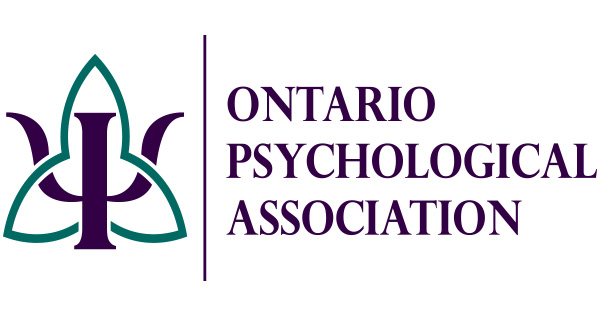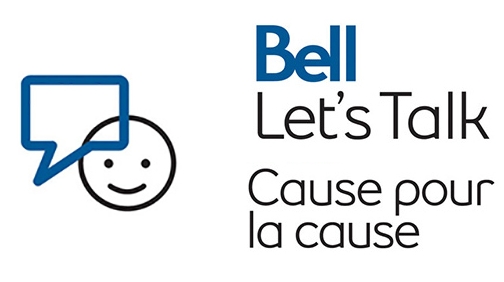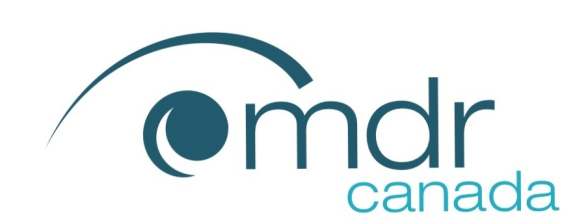PRIVACY & CONFIDENTIALITY POLICY
1. INTRODUCTION
Two laws exist whereby we must set up strict guidelines to ensure the privacy of your personal information: the Personal Information Protection and Electronic Documents Act (PIPEDA, Canadian law, 2000) and the Personal Health Information Protection Act (PHIPA, Ontario law, 2004).
In order to protect the client’s rights and privileges, psychologists are also regulated by several acts, standards, codes of ethics and guidelines such as the
Regulated Health Professions Act, 1991
Psychology Act, 1991
Standards of Professional Conduct
Canadian Code of Ethics for Psychologists
This document describes our PRIVACY AND CONFIDENTIALITY POLICY and our commitment to you. It concerns you directly. Please read it carefully and feel free to comment or ask questions.
Privacy of personal information is an important principle for FILION Psychology Professional Corporation. We are committed to collecting, using and disclosing personal information responsibly and only to the extent necessary for the services we provide. We strive to be open and transparent regarding how we handle personal information.
2. WHAT IS PERSONAL INFORMATION?
Personal information is information about an identifiable individual and includes information that relates to an individual’s personal characteristics (e.g., gender, age, home address or phone number, ethnic background, family status); health (e.g., health history, health conditions, health services received by them); or activities and views (e.g., religion, politics, opinions expressed by an individual, an opinion or evaluation of an individual). Personal information is different from business information (e.g., an individual’s business address and telephone number), which is not protected by privacy legislation; however, in this office, the latter will also be dealt with confidentially.
3. WHO WE ARE: CONSULTANTS AND OUTSOURCED PROVIDERS
FILION Psychology Professional Corporation includes Dr. Filion only, without in-office assistance. However, we use several consultants and agencies that may, in the course of their duties, have limited access to personal information we hold. We have taken steps with these organizations to ensure confidentiality of the information provided.
We deal with an accounting firm, administrative advisers, banks and computer support services. We also use the services of cleaning and maintenance personnel, as well as electricians, plumbers, alarm technicians, etc. If such providers must enter our office, all documents containing private information are properly filed. Also, each one of these providers is requested to read, understand and sign a PRIVACY AND SECURITY AGREEMENT for CONSULTANTS AND OUTSOURCED PROVIDERS. You may ask to see this agreement if you wish.
For your wellbeing, we also use health professionals, such as psychologists, psychiatrists, neuropsychologists and doctors. If ever necessary to reveal your name to these specialists, you will be consulted, and your written consent will be required.
4. WE COLLECT PERSONAL INFORMATION
Like all psychological practices, we collect, use and disclose personal information in order to serve our clients.
Examples of the personal information we specifically collect in this office include the following: address, phone number, family doctor, family description and history, ethnic origin or country of origin, education, marital or partnership status, health history, health conditions, occupation, religion, presenting problems, medication history, past events, thinking patterns, behaviours, emotions, physiological reactions, etc.
5. OUR PURPOSES FOR COLLECTING PERSONAL INFORMATION
to deliver efficient client care
to assess, diagnose and treat
to appropriately train or supervise
to identify and to ensure continuous high-quality services
to assess your psychological needs
to provide health care
to advise you of treatment options
to enable us to contact you
to establish and maintain communication with you
to offer and provide treatment, care and services relating to psychological general and specific care
when referring, to communicate with specialists or other care providers, with consent provided by you
to allow us to book and confirm appointments
to allow us to efficiently follow up for treatment, care and billing
for teaching and demonstrating purposes on an anonymous basis
to complete and submit claims for third-party adjudication and payment
to comply with legal and regulatory requirements
to prepare reports to insurance companies (when agreed upon by the client)
to prepare materials for the review boards
to collect unpaid accounts
to comply generally with the law
6. PROTECTING PERSONAL INFORMATION
We understand the importance of protecting personal information. For that reason, we have taken the following steps:
Personal and health information is stored on the Owl Practice platform. Owl servers are located exclusively in Canada across multiple data centres in Toronto and Montréal connected to the Canadian Internet Backbone, TorlX. Though the Owl service is accessed via a browser, the data is encrypted in transit using SSL encryption, a trusted online security protocol.
If ever paper is used, it is secured in a locked and restricted area.
Electronic hardware is always in a restricted area. In addition, passwords are used on computers.
Our cell phones are digital as these signals are more difficult to intercept.
Electronic information is transmitted either through encrypted messaging.
External consultants and agencies with access to personal information must enter into privacy agreements with us.
7. RETENTION AND DESTRUCTION OF PERSONAL INFORMATION
We need to retain personal information for some time to ensure that we can answer any questions you might have about the services provided and for our own accountability to external regulatory bodies. We do not want to keep personal information too long to protect your privacy. We keep our client files for about 10 years after your last appointment. Our client and contact directories are much more difficult to systematically destroy, so we remove such information when we can if it does not appear that we will be contacting you again. However, if you ask, we will remove such contact information right away. We destroy paper files containing personal information by shredding. We destroy electronic information by deleting it and, when the hardware is discarded, we ensure that the hard drive is physically destroyed.
8. RECORD KEEPING
A record of our interactions is kept. Prior to or after the first interaction or session, an electronic file is opened in your name. This file is harboured on the secure Owl platform (see above under 6a.). Furthermore, no audio or video devices will be used without your signed consent. Your records must be retained for at least 10 years after your last appointment.
9. WHAT ABOUT CONFIDENTIALITY?
Confidentiality is of the utmost importance. Therefore, the electronic platform, office management system, computer programs, phone services, office space, etc. have been set up to maintain the highest level of confidentiality possible.
Everything that you tell your psychologist is confidential and no information is released without your consent. Exceptions to confidentiality include the following:
a suicidal danger
threats to do serious bodily harm to an individual or group
abuse of a child or an elderly person
abuse by a certified member of a health profession (the name of the client would only be given to the professional’s regulatory body with the client’s consent)
audit by the College of Psychologists (audits are done by psychologists who are bound to confidentiality)
case consultations (without names given) with other professionals of psychology
assessments provided to third paying parties (for example, car insurance companies), in which case written consent would be requested from the client beforehand to release information
also, a court of law could subpoena your records, but usually the judge is satisfied with a letter from the psychologist. Such a letter would be discussed with you before it would be sent to a judge. It is possible, however, that the court of law will subpoena the records if it is not satisfied with a letter.
finally, when required to do so under the Missing Persons Act, 2018, the police can require the release of information about a missing person after reasonable efforts have not enabled them to locate the person. Under these circumstances, your psychologist will comply with a Court Order, Search Warrant or Urgent Demand from the police and, as soon as reasonably possible, provide copies of the records or verbal equivalent as specified in the Order or Urgent Demand.
If you are not directly paying for your sessions (whether your place of work or an insurance company is paying), confidentiality is still maintained; however, this third party is entitled to certain information. Be sure to ask your psychologist about the limits of confidentiality in this case.
10. YOU CAN LOOK AT YOUR INFORMATION
With only a few exceptions, you have the right so see what personal information we hold about you. Often all you need to do is ask. We can help you identify what records we might have about you. We will also try to help you understand any information you do not understand (e.g., short forms, technical language). We reserve the right to charge a nominal fee for such requests.
If there is a problem, we may ask you to put your request in writing. If we cannot give you access, we will let you know within 30 days, if possible, and tell you the reason, as best we can, as to why we cannot give you access.
If you believe there is a mistake in the information, you have the right to ask for it to be corrected. This applies to factual information and not to any professional opinions we may have formed. We may ask you to provide documentation that our files are wrong. Where we agree that we made a mistake, we will make the correction and, where appropriate, notify anyone to whom we sent this information. If we do not agree that we have made a mistake, we will agree to include in our file a brief statement from you on the point and, as appropriate, we will forward that statement to anyone else who received the earlier information.
11. DO YOU HAVE A CONCERN?
Information Officer at FILION Professional Psychology Corporation
If you wish to make a formal complaint about our privacy practices, you may make it in writing to our Information Officer. She will acknowledge receipt of your complaint, ensure that it is investigated promptly, and that you are provided with a formal written decision with reasons. Our Information Officer, Dr. Suzanne Filion, can be reached at:
Dr. Suzanne Filion, Information Officer
FILION Professional Psychology Corporation
suzanne@drfilion.com
T: 613.330.1091
www.drfilion.com
College of Psychologists of Ontario
Being that the Information Officer is the same professional offering services at FILION Professional Psychology Corporation, you may wish to contact the College directly. Also, if you have a concern about the professionalism or quality of our services or the mental or physical capacity of Dr. Filion, we would ask that you first discuss the matter with her. If she cannot satisfy your concerns, you are entitled to complain to her regulatory body at:
The College of Psychologists of Ontario
110 Eglinton Avenue West, Suite 500
Toronto, Ontario M4R 1A3
cpo@cpo.on.ca
T: 416.961.8817 | 1.800.489.8388 | F: 416.961.2635
www.cpo.on.ca
Information and Privacy Commissioner of Ontario
For more general inquiries, you may wish to contact the Information and Privacy Commissioner of Ontario who oversees the administration of the privacy legislation. The Commissioner also acts as a kind of ombudsman for privacy disputes. The Information and Privacy Commissioner can be reached at:
Information and Privacy Commissioner of Ontario
2 Bloor Street East, Suite 1400
Toronto, Ontario M4W 1A8
info@ipc.on.ca
P: 416.326.3333 | 1.800.387.0073 | F: 416.325.9195 | TTY: 416.325.7539
www.ipc.on.ca







